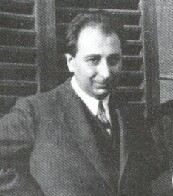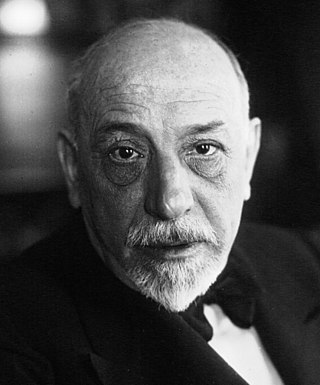
Luigi Pirandello was an Italian dramatist, novelist, poet, and short story writer whose greatest contributions were his plays. He was awarded the 1934 Nobel Prize in Literature "for his bold and ingenious revival of dramatic and scenic art". Pirandello's works include novels, hundreds of short stories, and about 40 plays, some of which are written in Sicilian. Pirandello's tragic farces are often seen as forerunners of the Theatre of the Absurd.
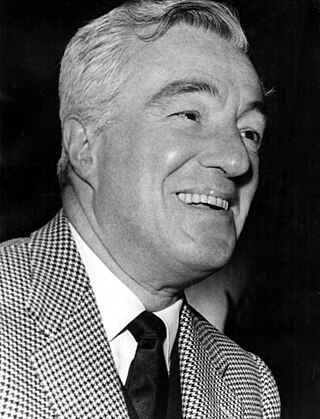
Vittorio De Sica was an Italian film director and actor, a leading figure in the neorealist movement.
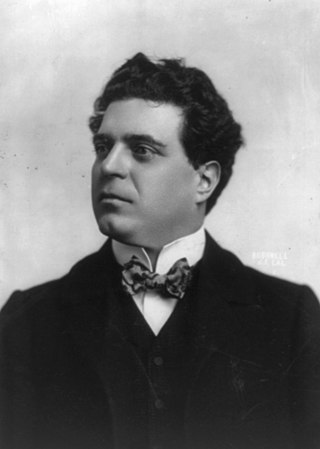
Pietro Mascagni was an Italian composer primarily known for his operas. His 1890 masterpiece Cavalleria rusticana caused one of the greatest sensations in opera history and single-handedly ushered in the Verismo movement in Italian dramatic music. While it was often held that Mascagni, like Ruggero Leoncavallo, was a "one-opera man" who could never repeat his first success, L'amico Fritz and Iris have remained in the repertoire in Europe since their premieres.

Marta Abba was an Italian actress, considered as the muse of the playwright Luigi Pirandello.

Alberto Savinio, born as Andrea Francesco Alberto de Chirico was a Greek-Italian writer, painter, musician, journalist, essayist, playwright, set designer and composer. He was the younger brother of 'metaphysical' painter Giorgio de Chirico. His work often dealt with philosophical and psychological themes, and he was also heavily concerned with the philosophy of art.
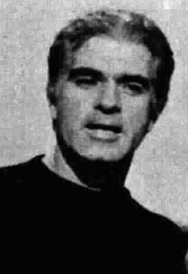
Giorgio Strehler was an Italian stage director, theatre practitioner, actor and politician.

Aldo Fabrizi was an Italian actor, director, screenwriter and comedian, best known for the role of the heroic priest in Roberto Rossellini's Rome, Open City and as partner of Totò in a number of successful comedies.
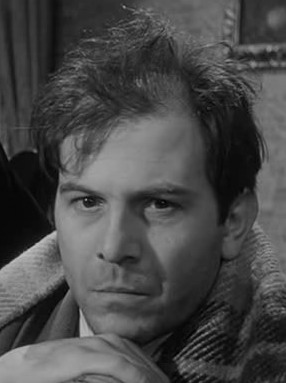
Enrico Maria Salerno was an Italian actor, voice actor and film director. He was also the voice of Clint Eastwood in the Italian version of Sergio Leone's Dollars Trilogy films, and the voice of Christ in The Gospel According to St. Matthew directed by Pier Paolo Pasolini.

Massimo Bontempelli was an Italian poet, playwright, novelist and composer. He was influential in developing and promoting the literary styles known as magical realism and lombard line.
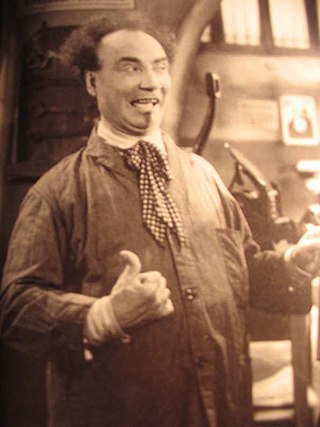
Angelo Musco was an Italian actor in theater and film. He was known for his comic abilities as well as for his carefully drawn psychological portraits.

Renato Cialente was an Italian stage and film actor. He appeared in 40 films between 1920 and 1943. His younger sister Fausta Cialente (1898–1994) was a novelist, journalist and political activist.

Arnoldo Foà was an Italian actor, voice actor, theatre director, singer and writer. He appeared in more than 130 films between 1938 and 2014.
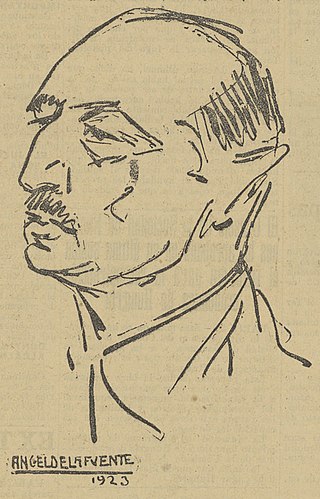
Dario Niccodemi was an Italian novelist and a playwright who was born in Italy.
Alfredo Balducci was an Italian playwright.
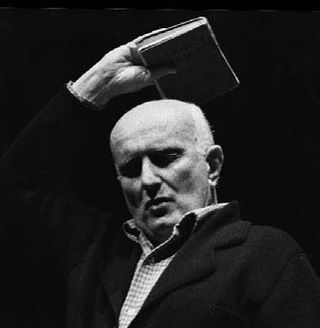
Giovanni Testori was an Italian writer, journalist, poet, art and literary critic, dramatist, screenplay writer, theatrical director and painter.
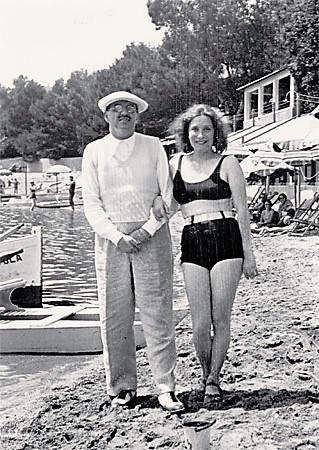
Silvio D'Amico was an Italian theatre critic, journalist, and theorist of Italian theatre. Not a Fascist himself, D'Amico was the major theatre critic during the ventennio, the twenty years (1922–1945) of Fascist rule in Italy. He was the first editor of the nine-volume Enciclopedia dello Spettacolo, published between 1954 and 1965, that covered theatre, music, cinema, and dance. Most notably, he held an eminent position in theatrical study in Italy, giving his name to the Silvio D'Amico National Academy of Dramatic Art in Rome, Italy's most prestigious drama school.

Luigi "Gino" Bramieri was an Italian comedian and actor. He was especially known as a television comedian, but also performed in theatres, on radio, and in about thirty movies. He was nicknamed "Il Re della barzelletta" for his burlesque comic style, which was largely based on his skill at telling funny stories. His jokes were sometimes as quick as a cut and thrust, and bordering on surrealism. They have been collected in a series of books, such as 50 chili fa.

Ettore Petrolini was an Italian stage and film actor, playwright, screenwriter and novelist. He is considered one of the most important figures of avanspettacolo, vaudeville and revue. He was noted for his numerous caricature sketches, and was the "inventor of a revolutionary and anticonformist way of performing". Petrolini is also remembered for having created the "futurista" character Fortunello. His contribution to the history of Italian theater is now widely acknowledged, especially with regard to his influence on 20th century comedy. His iconic character Gastone became a byword in Italian for a certain type of stagey snob. His satirical caricature of the Roman Emperor Nero was widely perceived as a parody of Benito Mussolini, although it may itself have influenced the mannerisms of the Fascist dictator.

Giovanni Meoni is an Italian operatic baritone.

The theatre of Italy originates from the Middle Ages, with its background dating back to the times of the ancient Greek colonies of Magna Graecia, in Southern Italy, the theatre of the Italic peoples and the theatre of ancient Rome. It can therefore be assumed that there were two main lines of which the ancient Italian theatre developed in the Middle Ages. The first, consisting of the dramatization of Catholic liturgies and of which more documentation is retained, and the second, formed by pagan forms of spectacle such as the staging for city festivals, the court preparations of the jesters and the songs of the troubadours.
